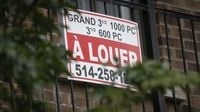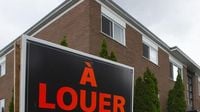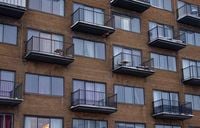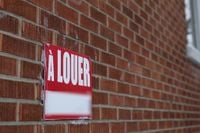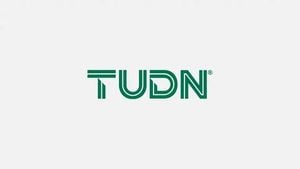The Tribunal administratif du logement (TAL) will determine recommended rent increases differently starting in 2026 to avoid significant increases during inflation and economic turbulence. In January, when it recommended a 5.9% rent increase for 2025, the TAL sparked a wave of criticism from both tenants and landlords, who called for a revision of its calculation method. This was the first time in 30 years that the TAL had recommended such a significant rent increase.
On Wednesday, April 16, 2025, Minister responsible for Housing, France-Élaine Duranceau, announced a series of regulatory changes that will be implemented next year to the TAL's calculation formula. According to the proposed adjustments by the TAL this year, the cost of a $1000 per month unheated apartment would rise to $1059, an annual increase of $708. A landlord who has made major renovations and faced a tax increase could raise the rent by 8.5% in 2025.
"This is a method that has been in place for over 40 years," emphasized the minister during an interview on ICI Première in Quebec City. "We had to be very careful in the approach and the modifications we were going to suggest. I have been looking at this for several months."
Since the 1980s, the TAL's calculation method has relied on 13 annual economic indicators measured by Statistics Canada. Some of these indicators, such as the housing component, are particularly sensitive to skyrocketing rents and the cost of living. This will now be a thing of the past. Starting in 2026, the new calculation will consider only four indicators, including the average Consumer Price Index (CPI) in Quebec over the past three years, a method referred to as a moving average.
"This will smooth out the increases and make it very simple," Duranceau stated. Another modification to the regulations of the Housing Administrative Tribunal is the establishment of a 20-year amortization period for the cost of improvements or maintenance of a rental unit or building. This amortization aims to prevent sharp rent increases for tenants when their landlord decides to renovate.
Historically, this period has varied. For example, in 2022, when major work was done on a building, the cost of improvements was recovered over a period of 50 years. By January 2023, this period was reduced to 26 years. By setting the recovery period at 20 years, Quebec aims to provide more predictability for property owners. According to the minister, this created inequity among tenants regarding what they had to pay in compensation for the work done and removed predictability for owners.
The changes have been well received by the Corporation des propriétaires immobiliers du Québec (CORPIQ), where spokesperson Éric Sansoucy praised the minister's decision to revise the calculation method for rent increases. "We were asking for more stability and predictability. The moving average gives us that," Sansoucy explained. "When a year brings significant inflation, we will avoid a shock in rent increases. This is also good news for the TAL, where the number of requests for rent fixation has tripled in the last two years. More predictability and lower annual rent increases will also help, according to CORPIQ, reduce tensions at the TAL, as disputes involving rent increases should be fewer."
However, CORPIQ expressed some disappointment regarding the 20-year amortization period for renovations. "It's a step in the right direction, but it's still not enough to encourage owners to invest in their buildings," Sansoucy said. "If we had shorter recovery periods, it could really serve as a trigger to encourage owners to invest in the renovation of buildings rather than letting them deteriorate due to long recovery times. We believe this is the way to reverse the trend of renoviction."
On the other hand, the Regroupement des comités logement et des associations de locataires du Québec (RCLALQ) reacted with anger and dismay to the changes announced by Minister Duranceau. In a statement, the group argued that these changes will "normalize rent increases based not on the actual costs of managing a building but on the potential market value of the housing, benefiting landlords more." On Facebook, the organization accused Minister Duranceau of giving landlords what they wanted by aligning the rent fixation calculation with the CPI. However, they pointed out that inflation is already considered in the current calculation. Taxes, insurance, heating, and maintenance costs are all indexed. "What’s the point, then? Once again, the CAQ acts to inflate increases, responding to owners, not tenants," the RCLALQ stated.
In 2025, this inflation-based calculation could seem "advantageous" for tenants, given that inflation is historically high. If it had been applied earlier, this new calculation would have consistently led to higher increases, the RCLALQ warned. Given that these reforms do not meet the tenants' needs, the group is calling on the government to implement mandatory rent controls and establish a public registry for this purpose.
Overall, the changes to the rent fixation method represent a significant shift in Quebec's housing policy, aiming to balance the interests of both landlords and tenants. While landlords welcome the increased predictability and stability in rent calculations, tenants remain concerned about the potential for increased financial burdens in the future. As the new regulations come into effect, both sides will be watching closely to see how these changes impact the rental market and the lives of tenants across the province.
